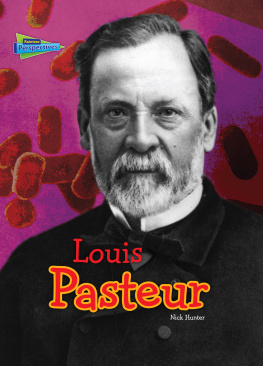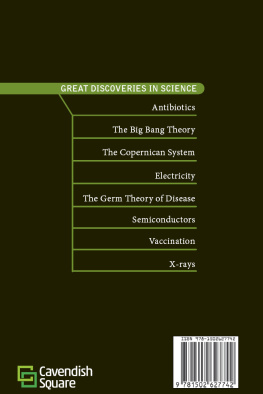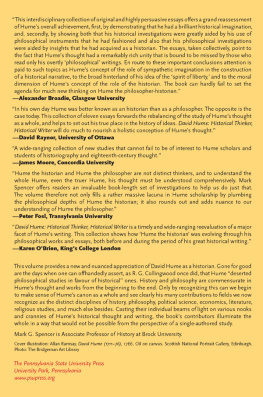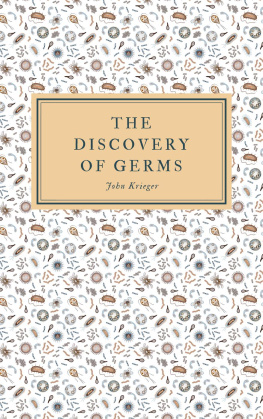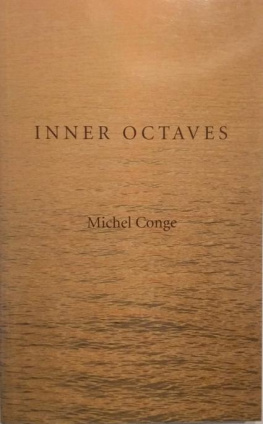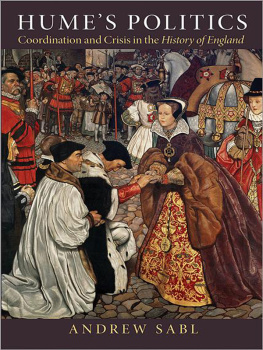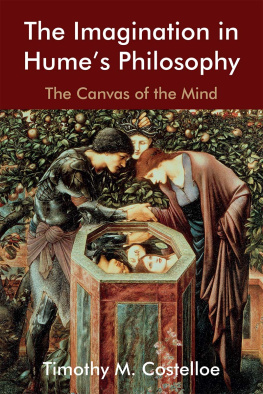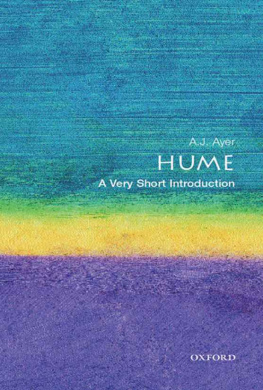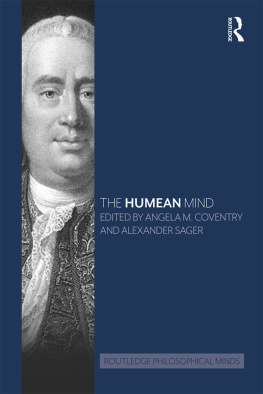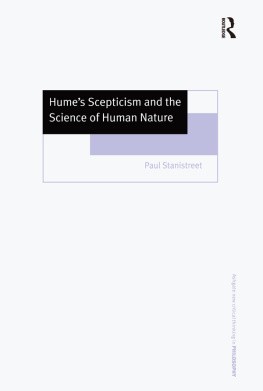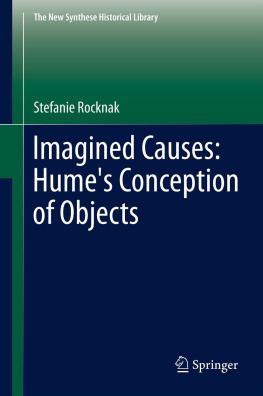BCHAMP OR PASTEUR?
A Lost Chapter in the History of Biology
Ethel Douglas Hume
prefaced by
PASTEUR: PLAGIARIST, IMPOSTOR
The Germ Theory Exploded
R.B. Pearson
*

If I could live my life over again, I would devote it to proving that germs seek their natural habitat, diseased tissue rather than being the cause of the diseased tissue.
Rudolph Virchow
Nothing is lost, nothing is created ... all is transformed. Nothing is the prey of death. All is the prey of life.
Antoine Bchamp
The specific disease doctrine is the grand refuge of weak, uncultured, unstable minds, such as now rule in the medical profession. There are no specific diseases; there are specific disease conditions.
Florence Nightingale
Bchamp or Pasteur?
A Lost Chapter in the History of Biology
by Ethel Douglas Hume.
First published in 1923.
Pasteur: Plagiarist, Impostor
The Germ Theory Exploded
by R.B. Pearson.
First published in 1942.
This edition copyright 2010 dminoz.com
This book is also available in print.
ISBN 978-0980297607
See it on Amazon .
All rights to this edition of this work are reserved. No part of this book may be reproduced or transmitted in any form or by any means, graphic, electronic, or mechanical, without the permission of the publisher.
A DMINOZ eBOOK
web dminoz.com
email
ABOUT THIS BOOK
Although this title is old, the two component texts having been first published in 1923 and 1942, this book has not been created by just copying the text and prettying it up for publication as an ebook and a printed book. This, and other books from dminoz.com , have been carefully edited, with the intention of bringing grammar and presentation up to date, and overall a comfortable exercise for the modern reader. There is a type of purist among readers who will not like this, and regard it as taking liberties with the authors intentions. To those, all I can say is bad luck -- and if they are really that intent on reading language and grammar which can seem archaic, and wading through paragraphs that go on for pages, as is common with old texts, I can only suggest that they find online versions of the original texts. Of course, my hope is that this new edition of a classic text meets with the readers approval, and that the authors intention is made clearer to the reader in this updated and revised version.
The reader may also be interested in The Blood and its Third Element , by Antoine Bechamp. As it is the last book he wrote, it is a thorough, but technical, discussion of his ideas. It is available in both print and ebook format from dminoz.com .
David Major ( )
Contents
Book One
Pasteur: Plagiarist, Imposter
by R. B. Pearson
.
.
Book Two
Bchamp or Pasteur?
A Lost Chapter in the History of Biology
by Ethel Douglas Hume
Part One: The Mystery of Fermentation
Part Two: The Microzymas
Part Three: The Cult of the Microbe
A Note from the Publisher
THIS VOLUME CONTAINS new editions of two books which have been available only sporadically in the decades since their publication.
R. Pearsons Pasteur: Plagiarist, Imposter was originally published in 1942, and is a succinct introduction to both Louis Pasteur and Antoine Bchamp, and the reasons behind the troubled relationship that they shared for their entire working lives.
Whereas Pearsons work is a valuable introduction to an often complex topic, it is Ethel Douglas Humes expansive and well-documente d Bchamp or Pasteur? A Lost Chapter in the History of Biolog y which provides the main body of evidence. It covers the main points of contention between Bchamp and Pasteur in depth sufficient to satisfy any degree of scientific or historical scrutiny, and it contains, wherever possible, detailed references to the source material and supporting evidence. Virtually no claim in Ms Humes book is undocumented to have access to more material, one would need to be able to read French, and go to the original source material.
The reader will soon discern that neither Mr Pearson nor Ms Hume could ever be called fans of Pasteur or his science. They both declare their intentions openly; that they wish to contribute to the undoing of a massive medical and scientific fraud. The publication of this present edition of their work is undertaken with complete empathy for that intention.
The text of both books has been comprehensively re-edited for style more than content the intention being to make for easier reading than the style of language used in the first half of the twentieth century would otherwise allow. I hope that the end result is an improvement, and that the authors would approve. I think they would.
-- David Major
BOOK ONE
Pasteur: Plagiarist, Imposter
The Germ Theory Exploded
R. B. Pearson
First published in 1942
Authors Preface
IT IS A SERIOUS MATTER to attack the reputation of a famous man, especially one who has posed and been accepted as one of the worlds greatest scientists. For many years, Pasteur has been looked upon as a founder and leader in serology; but it is always pertinent to look into the beginnings of any subject on which there is a difference of opinion, with the hope of finding the truth in the matter.
The writer has made an effort in his prior books and pamphlets to show that the germ theory is false, and that illness is practically always due t o errors of diet or manner of livin g , the germs being present solely as scavengers of dead and waste tissues and foods, an d not as the cause of the diseas e .
However, the erroneous belief that germs cause disease and must be controlled or eliminated before it can be cured is so widespread as to close the minds of many people to any other ideas on this subject.
For this reason it seems that a thorough investigation of this idea, the grounds on which it is based and even the bona fides of those who started it on its way is necessary before any sane ideas as to the proper treatment of disease can be widely promulgated.
When Ethel Douglas Hume s Bchamp or Pasteur ? appeared in 1923, it seemed to be just the thing that would fill this gap and end the use of serums and other biologicals forever. But it is now 19 years since that book, which should have marked an epoch in the healing arts, was published. It did not receive the attention it deserved in medical circles and, though it is now in its second edition, the medical profession are pushing biologicals harder than ever.
Hence it seems appropriate to go over the subject in order to show the truth regarding the falsity of Pasteurs ideas and claims to fame, and the fraudulent basis on which the germ theory rests, as was so well shown by Ms Hume i n Bchamp or Pasteur? , and to add other facts and statistics that support the idea that the germ theory is false, in the hopes that it may receive wider circulation and more general attention, and possibly lead to a complete overhauling of the question of the treatment of disease, especially regarding serology.
The translations from the French, and other material in Chapters 2, 3, 4 and 5 not otherwise credited, are fro m Bchamp or Pasteur ? by Ethel Douglas Hume.
In closing, I wish to acknowledge my indebtedness to the Reverend and Mrs Wilber Atchison of Chicago for many suggestions and valuable assistance in the preparation of the manuscript. Miss L. Loat, secretary of the National Anti-Vaccination League of London, has also been very kind, responding to every request for information with more than could be used, some of it being especially compiled at the cost of considerable effort.


